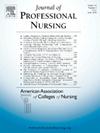Nursing faculty perceptions of entry to nursing practice competencies expected at day one of hire: A statewide study
IF 2.9
3区 医学
Q1 NURSING
引用次数: 0
Abstract
Background
No universal nursing education framework exists aligning competency expectations of new-to-practice nurses graduating from the varying prelicensure academic degree programs.
Purpose
This study aimed to identify a set of core competencies expected of all prelicensure nursing programs in Maryland, including associate degree (ADN), entry-level bachelor of science nursing degree (BSN), and master of science entry into nursing (MSN Entry) programs.
Method
A mixed-method approach was used to identify necessary competencies, including a survey consisting of 109 outcome statements and a series of focus groups with faculty representatives from the prelicensure degree programs.
Findings
Unexpected findings showed few differences between ADN, BSN, and MSN Entry nursing program faculty perceptions regarding their program graduates' ability to meet the expected competencies. Faculty were not surprised that few differences emerged. Barriers like overloaded curricula, the necessity of prioritizing teaching specific components of nursing content for NCLEX, and competing priorities were faculty concerns.
Conclusions
A comprehensive examination of all BSN and MSN entry knowledge not included in the NCLEX-RN is suggested for students, nurse residents, and professional nurses, delineating entry-level and ongoing minimal core competencies expected of a competent professional nurse. Results support the development of a competency-based education framework to clearly communicate learning and performance expectations among the varying degree programs.
护理教师的观念进入护理实践能力预期在雇用的第一天:一项全州范围的研究
背景:没有统一的护理教育框架来协调从不同的执照前学位课程毕业的新执业护士的能力期望。目的本研究旨在确定马里兰州所有护理预备课程的核心能力,包括副学士学位(ADN)、初级护理学士学位(BSN)和护理硕士学位(MSN)。方法采用混合方法来确定必要的能力,包括一项由109项结果陈述组成的调查,以及与来自执照前学位课程的教师代表进行的一系列焦点小组讨论。出乎意料的结果显示,ADN, BSN和MSN入门护理项目教师对其项目毕业生满足预期能力的能力的看法几乎没有差异。教师们对几乎没有出现什么差异并不感到惊讶。像超负荷的课程,优先教授NCLEX护理内容的特定组成部分的必要性,以及相互竞争的优先事项等障碍是教师关注的问题。结论建议学生、住院护士和专业护士对NCLEX-RN中未包括的所有BSN和MSN入门知识进行全面检查,以描述合格专业护士的入门和持续的最低核心能力。研究结果支持了以能力为基础的教育框架的发展,以清晰地传达不同学位课程之间的学习和表现期望。
本文章由计算机程序翻译,如有差异,请以英文原文为准。
求助全文
约1分钟内获得全文
求助全文
来源期刊
CiteScore
4.80
自引率
8.00%
发文量
153
审稿时长
52 days
期刊介绍:
The Journal will accept articles that focus on baccalaureate and higher degree nursing education, educational research, policy related to education, and education and practice partnerships. Reports of original work, research, reviews, insightful descriptions, and policy papers focusing on baccalaureate and graduate nursing education will be published.

 求助内容:
求助内容: 应助结果提醒方式:
应助结果提醒方式:


